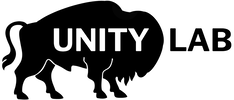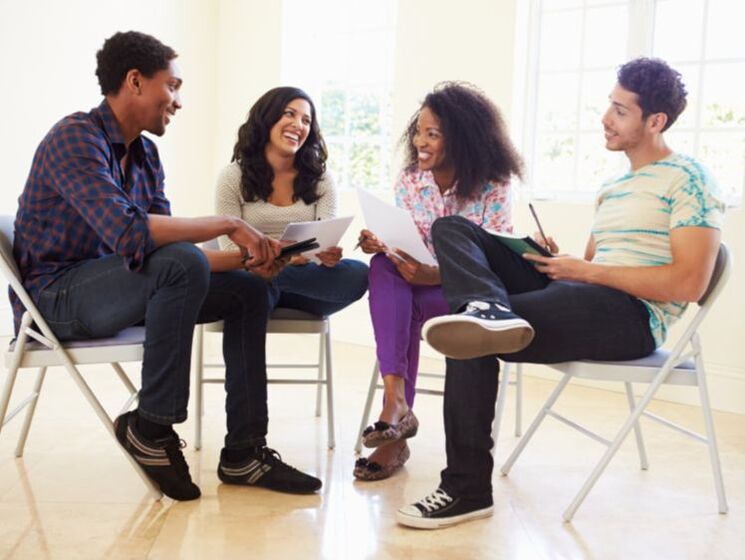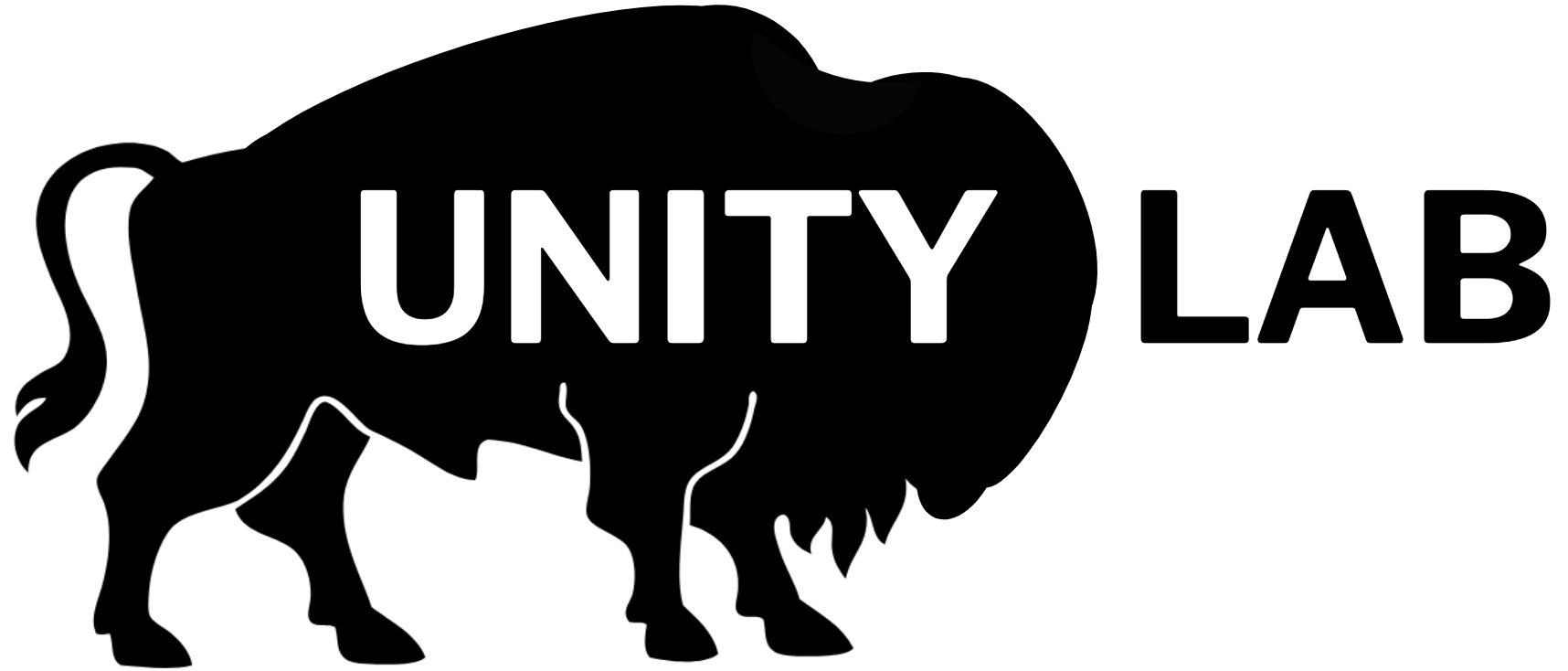It's time for a New Way.
The Old Way is broken.
|
Small, diverse learning groups
are the key to authentic relationships and profound shifts in beliefs and behaviors.
|
RESPECT
percent experience respect from their peers
|
EMPATHY
percent experience empathy from their peers
|
|
Methodology
|
The Science
The Unity Lab method (4 diverse people experience a 5-module program where they learn content, take actions and have a 1-hour conversation about their experiences) leverages the last 30 years of breakthroughs in neuroscience, psychology and social learning to create cultures of purpose and belonging. So what? Why does this method matter? The Culture Epidemic Our culture is one of discord, mistrust and loneliness. Trust is critical to a functioning democracy(1), our overall health(2), and the innovation(3) and productivity(4) of our economy. Unfortunately, only 17% of people trust the United States government(5) and just 41% trust the news media(6). We're not too happy about each other either, as 9% of Republicans and 14% of Democrats have a favorable view of the other party(7). This is a dynamic that extends beyond scowls and mistrust, and towards intent to harm, as 1 in 3 Americans justify violence for political gains(8). As a result, we're isolating ourselves from those who are different from us, and sometimes altogether. As of December 2019 (pre-covid) 61% of us were lonely, up from 46% in 2018(9). Loneliness is a health risk equivalent to smoking 15 cigarettes a day(10). A day. Loneliness contributes to depression and suicide. It is no wonder that deaths of despair (suicide, alcohol, drugs) have skyrocketed to an all-time high(11). We need each other now more than ever. We need empathy and trust in our communities and organizations. Rebuilding our culture a critical piece of the solution (along with steady jobs, safety, security, functioning democracy, FCC Fairness Doctrine, et al). Unity Lab offers a scalable method to rebuild trust at the organization, community and national level through carefully crafted social learning experiences. We learn better together over time. Peer learning is how most learning happens. Research suggests that 80% of us learn as much or more from our peers than authority figures(12) and we learn 63% more from conversations in small, diverse learning cohorts, than we do from consuming information alone(13). This is because, weak ties, such as those between HR / trainers and participants are good for spreading information only. Behavior change requires network redundancy, consistency, and developing strong ties, ties that can only develop via sustained connection with a small group of people over time (14). The same holds in an adult learning or transformational context. Research suggests that group approaches are significantly more impactful than those that focus solely on individuals, e.g., psychotherapy or coaching(15). The reason for this is that groups enable behavior change through social support(16), the formation of group norms(17), group identity(18), and social identities(19), and through group feedback and being challenged(20). When small groups are designed in such a manner that we feel safe and can share uncomfortable feelings, we experience fewer feelings of isolation, alienation, blame, and stigma due to past mistakes(21). As people are engaged in supporting each other, sharing vulnerably, and skillfully challenging each other over time, their beliefs, behaviors, underlying intuitions and moral reasoning also change(22). Given the power that groups have to shift behavior (for better or worse), we must bring a great deal of care and attention to how we form and maintain groups. The size, composition, duration of groups, as well as what people learn together are critical elements of a successful social learning experience. Group size For every person added to a group, there is a loss of intimacy and a gain in perspective(23), and larger groups (> 6 people) face logistical difficulties in selecting a time to meet. As such, it is likely that the optimal "Goldilocks condition" for a group's size is 3-6 people. Group composition Given the limited size of a group (<6), when a person is placed in a group, it is important that the perspective they bring is diverse and unique. Research suggests that optimizing groups for diversity, especially in relation to gender(24) and ethnicity(25), yields better learning and behavioral outcomes. Gordon Allport's 1954 "contact hypothesis", and several decades of subsequent research, reveals that the more contact people have with those who are different, the greater they understand them and feel connected to them(26). Program Duration and Scope Because people forget 90% of what they learn from a one-time training within 7 days(27), it is critical that learning is spaced out over time, so that it can be reinforced, and diverse relationships can develop. Research suggests that the optimal number of sessions for a social learning experience is 5 sessions, beginning with an introductory module, then 3 content-driven modules and a final wrap-up module(28). Further, to effect a culture change across a population, such as an organization, at least 25% of the population must adopt a new belief or behavior(15). Self-reflection Lastly, if the goal is to build empathy and trust among diverse groups, it is critical to incorporate self-reflection exercises into the group sessions, so that people discover more of who they are and have the opportunity to view the skills they learn as expressions of their purpose and values versus distinct from, or antithetical to, them. When self-reflection is incorporated into a learning experience, the door opens for a whole host of prosocial beliefs and behaviors and an orientation towards community(29). Research suggests that when people reflect on their purpose they experience a 4x reduction in anxiety in diverse environments(30) and 4x increase in the desire to live in a diverse city(31). Other purpose and values-driven outcomes:
Conclusion While the aforementioned research is relatively new, building a diverse coalition around a shared purpose has been central to many of our greatest innovations and proudest moments as a nation. From Farm Aid in the 1980's(38), to the Jigsaw method to racially integrate Texas schools in the 1970's(39), to the racial collaboration at NASA in the 1960's(40), to the "Robber's Cave" study on competition, tribalism and solidarity in the 1950's(41), and our nation's rapid WWII mobilization in the 1940's(42), we continually come back to the same conclusion: we are better, kinder and stronger together. So long as we have a shared goal, experience empathy and trust, we transcend our perceived differences and achieve the unimaginable. Sources:
|
The Method The Unity Lab method (4 diverse people experience a 5-module program where they learn content, take actions and have a 1-hour conversation about their experiences) empowers your people to develop leadership and communication skills, build empathy and trust with diverse people and activate their purpose and leadership. Structure Unity Lab programs are delivered in a 5-module virtual video conferencing format. Each module takes 1.5 hours and leverages 6 learning styles (reading text, watch video, audio, written reflection, guided discussion and action taking). What Your People Will Experience They will: #1 Receive an email to complete the group matching survey and pre-program assessment. The survey will be used to match them in their small diverse group. The pre-program (and post-) assessment will allow you to see their progress. #2 They will join the live kick-off call with the whole cohort and meet their fellow small group members. #3 They will register in the Unity Lab LMS to connect with their small group, as well as the whole cohort, ask questions of the program leaders and receive the materials for each module. #4 They also receive an email each week with the content, exercises and discussion guide. #5 They stay connected with their group in between sessions. #6 They take the post-program assessment and see their progress. #7 They join the celebration / completion call to celebrate their progress, hear from their fellow participants and explore next steps on their journey. #8 They receive an email with their certificate of completion. |




